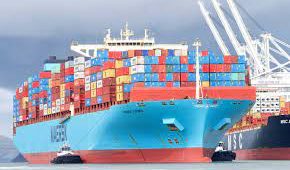By Eric London
@EricLondonSEP
Apr 2, 2022
The war between the US-NATO and Russia in Ukraine has lit a fuse to the powder keg of the global class struggle. In the span of just a few weeks, the war and unprecedented US and EU sanctions against Russia have profoundly destabilized the world’s productive forces, throwing already-frail global supply chains into disarray, strengthening inflationary tendencies, and crippling global food and gas production.
A social and economic crisis that was worsening before the war began has now metastasized, bringing billions of people to the precipice of destitution and hunger.
Shock is beginning to give way to action. Significant strikes and demonstrations are breaking out across the world in the largest wave of social protest since before the outbreak of the COVID-19 pandemic.
The imperialist politicians and geo-strategists who spent years drawing up the blueprints for war are discovering that despite all their careful planning, they set their bloody plans into motion on top of a massive social fault line.
The protests are heterogenous in terms of race and religious background, international in scope, and are based in a working class that is larger, more urban and more interconnected than ever before. In more advanced and less developed countries alike, the protests revolve around the same demand: the rising cost of living is intolerable, conditions must change, and they must change now.
This is the social force that has the power to stop the drive to world war and prevent nuclear disaster. This global movement is unfolding by the hour.
On Thursday night, a large demonstration blocked the road to President Gotabaya Rajapakse’s private residence in Colombo’s outer suburbs, demanding his resignation. The right-wing government is implementing a ruthless IMF austerity regime as masses of people struggle to find medicine, food, milk and gas.
Diesel fuel has run out, currency is scarce, and long power outages blacken the country. A 31-year-old school teacher in Batticaloa told the Indian Express, “On Sunday I stood in a gas queue starting at 4 am. There is a shortage of milk powder. One has to struggle for rice and daal. There are no candles and many medicines have disappeared. I have a salary, but can we eat money?”
Similar movements are developing across the Middle East and North Africa, where Ukraine and Russia provide the bulk of wheat and cooking oil and where Ramadan, the Islamic holiday of fasting and feasting, is set to begin.
The United Nations declared Thursday that social conditions are “at a breaking point” across the region due to food shortages. The New York Times wrote Thursday that scarcity and price increases “crush household and government budgets alike in countries that had nothing to spare, raising the possibility of the kind of mass popular unrest not seen since the Arab Spring protests a decade ago, which stemmed in part from soaring food prices.”
In Egypt, the Times noted nervously, “videos of ordinary people venting about food prices have gone viral on social media under the hashtag ‘revolution of the hungry.’”
The US-backed al-Sisi dictatorship has deployed the military to distribute food and set price controls for bread. Al-Sisi addressed the nation and urged the population to “rationalize” food consumption during Ramadan.
In Tunisia, where workers first sparked the Arab Spring, the Middle East Eye wrote Thursday that “strikes intensified last week,” and as a result, “Ezra Zia, US undersecretary of state for civilian security, democracy and human rights, visited the country.”
Food riots involving thousands of people took place across Iraq last week as the country, still reeling from a US invasion and occupation that killed a million people, was gripped by a serious shortage of food and flour.
Protests are also developing south of the Maghreb, in African countries where the working class has exploded in size and social weight and whose backbone includes many young people with the Internet in the palms of their hands. The average sub-Saharan African spends 65 percent of his household earnings on food. On Wednesday, the head of the Africa Development Bank said of the surge in food prices caused by the war in Ukraine: “If we don’t manage this very quickly, it will destabilize the continent.”
Protests in Sudan over shortages worsened by the war have coincided with powerful strikes of teachers and youth. Yesterday, a mass protest took place in Khartoum over the military government’s inability to stop the spiraling cost of living and where one 23-year-old protestor was killed.
In the Democratic Republic of the Congo, according to a report published Thursday by Al Jazeera, “rising fuel prices, worsened by the COVID-19 pandemic and more recently the Russian invasion of Ukraine, have sparked fears of increased social unrest,” forcing the government to reshuffle the cabinet to preempt social anger.
In South Africa, where large riots took place last summer, the head of a major youth non-profit described the social situation as “a time bomb that is ticking and could explode in our faces at any given moment.”
This movement is also developing in the world’s imperialist centers. In Spain, a weeks-long strike by truckers has brought international shipping to a standstill and galvanized broader support in the working class over the rising cost of living. The PSOE-Podemos government has ordered grocery stores and retailers to limit what customers can purchase, as the major business confederations demand action to prevent an imminent social explosion.
In Germany and Austria, diesel will now be rationed. Large demonstrations over the cost of living took place last month in Albania.
In the United States, the cockpit of world imperialism, the emerging strike movement is driven above all by inflation and the spiraling cost of living. Five thousand teachers are on strike in Sacramento, California, following a two-week strike by teachers in Minneapolis, Minnesota in March.
In an ongoing strike by 600 oil refinery workers in Richmond, California, workers explain they cannot afford to fill their own cars with the gas they refine.
Fifty thousand grocery store workers in California are slated to strike in the coming days, while a contract for tens of thousands of dock workers on the west coast expires in a matter of weeks.
In the US and Canada, the government has banned or blocked major strikes by rail workers at BNSF and Canadian Pacific.
Rising prices in the main imperialist countries will intensify the class struggle as the war continues. According to Thursday’s US Commerce Department data, inflation will cost households an average of an extra $433 each month, or $5,200 in the next year. Given that half the country has less than $500 in emergency savings, workers will be driven into struggle by urgent necessity.
The impact of the war on living conditions is going to intensify dramatically in all countries in the coming weeks. Strategic food reserves are woefully inadequate in all countries excepting China.
Making matters worse, Ukraine and Russia are not only leading producers of staple food and oil, but Russia and Belorussia also lead the world in the production of most fertilizers, which Putin has announced will be subject to strict export restrictions in response to US and EU sanctions. This could cut global crop yields in half.
With the pandemic and the threat of world war as the immediate backdrop, a social reckoning of historic proportions is past due. Since the Arab Spring and the global protests of 2018–19, the ruling class’s response to the COVID-19 pandemic has prioritized profits over life and led to the deaths of 20 million people.
excerpt from an article at www.wsws.org
We remind our readers that publication of articles on our site does not mean that we agree with what is written. Our policy is to publish anything which we consider of interest, so as to assist our readers in forming their opinions. Sometimes we even publish articles with which we totally disagree, since we believe it is important for our readers to be informed on as wide a spectrum of views as possible.











